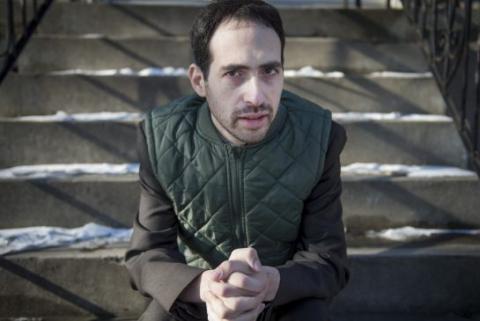Ex-student of ultra-orthodox Jewish school system in Quebec wants compensation for poor education
Unsettled, the issue was resurrected by the Parti Québécois again last year with a proposed values charter that would have banned religious symbols in the public service in order to ensure state secularism. The proposal died when the PQ was tossed from power, but the matter seems likely to flare again in the future. It could be soon if the current education minister, Yves Bolduc, follows through on his stated goal of shutting down illegal Jewish schools in the province that operate without funding or certification from the education ministry.
Far more difficult to substantiate are partly subsidized private schools that flout or ignore the curriculum, which includes the teaching of evolution theory and a course on religion as a sociological construct rather than dogma. “People don’t know about the Hassidic schools and how they operate. The principles are quite different, it’s true. But these are quite disciplined schools,” said Pierre Anctil, a University of Ottawa professor specializing in the history and culture of Montreal’s Jewish communities. “They take education very seriously. This isn’t a joke as we’ve seen sometimes in some very marginal communities that are a creation of one person who likes to be a guru.”
Yet Lowen’s claim that he was not obligated to master subjects like French, English and mathematics, and that he was discouraged because they would interfere with religious studies, support the public’s worst suspicions about what goes on in these schools. Lowen claims he was told that the time and mental energy put into secular learning was better spent learning about the Torah. “The perspective is that even someone who is blank and hasn’t learned anything, his soul is more pure than a boy that has learned the ABCs,” he said.
Morton Weinfeld, a professor of sociology and Jewish studies at McGill University, said that even within Quebec’s ultra-orthodox Jewish community there is a range of opinion about the amount of secular instruction students should receive. “There have been up to seven Hassidic communities in Montreal and they all have had their own schools. This particular school in Boisbriand is toward the more conservative side of the spectrum in terms of being the least secular,” he said. “They probably have very, very little secular education.”
Messages left with the Oir Hachaim D’Tash Rabbinical College seeking comment were not returned. Another school cited in Lowen’s claim, Yeshiva Beth Yuheda, could not be reached for comment. Neither appears to be certified by Quebec’s education ministry as licensed private schools. A spokesperson for Bolduc would not comment on the case, saying it was a legal matter. However, a ministerial committee has been looking at how to deal with Quebec’s uncertified Jewish schools in Quebec for some time now. Its only result to date has been a negotiated settlement announced earlier this month allowing a school in Montreal, Yeshiva Toras Moshe, to continue focusing on matters of faith while leaving parents to homeschool their children in secular subjects.
Reviews have been poor, with critics questioning the ability of parents to teach the curriculum, the ability of local school boards to manage the influx of students and the precedent it sets for other religious schools.
Lowen’s letter to education officials cites the Yeshiva Toras Moshe case as proof the Quebec government knew it had failed in its obligations to students. In 2006, the education ministry sought an injunction to force the closure of the school, which was established in 1952 and receives no public funding. The application was turned down, in part because the judge could see no reason to impose an emergency solution after a half-century of inaction during which the school’s existence and teaching methods were effectively ignored. “If the government had intervened as it should have, it would have changed the life of our client,” Lowen’s written claim states.
The Hassidic educators who run these schools also have a responsibility. Yakov Rabkin, an orthodox Jew who teaches history at the Université de Montréal, compared the situation to a driver who never stops at a red light because he knows the police are never there to enforce the traffic laws. But if provincial authorities are serious about ensuring that illegal or non-conforming schools fall into line, Rabkin said, the Hassidim will have two clear choices: comply or move. “There is nothing in the belief system prevents you from studying mathematics and physics, but there is a value system that states that any time spent on activities other than the study of Torah is essentially a waste of time.”
There is, of course, a danger of driving the Hassidic education system underground, driving families out of the province, or being accused of unfairly singling out Jews for punishment. But Lowen sees only benefit, the chance that the heavy hand of the government could improve the lot of many orthodox Jews that he says secretly wish for a better education and better livelihoods for their families. “In fact, I know that it has done good already, he said, referring to his case. “I have information about some schools here in Montreal that now give secular education, much more than they used to give.”
Allan Woods

